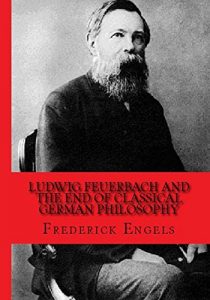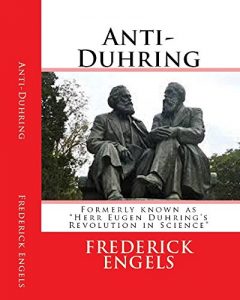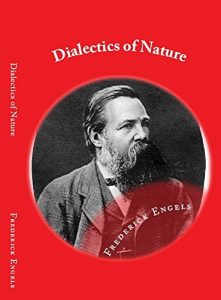Ludwig Feuerbach and the End of Classical German Philosophy (German: Ludwig Feuerbach und der Ausgang der klassischen deutschen Philosophie) is a book published by Friedrich Engels in 1886.
According to Engels, the seed for this book was planted 40 years before, in The German Ideology written by Marx and Engels, but unpublished in their lifetime. The undertaking is performed to deal critically with German philosophy from a dialectical materialist position. Here Engels emphasized the importance of Georg Wilhelm Friedrich Hegel and Ludwig Feuerbach for their own theories.
In the preface to A Contribution to the Critique of Political Economy, published in Berlin, 1859, Karl Marx relates how the two of us in Brussels in the year 1845 set about: "to work out in common the opposition of our view" -- the materialist conception of history which was elaborated mainly by Marx -- "to the ideological view of German philosophy, in fact, to settle accounts with our erstwhile philosophical conscience. The resolve was carried out in the form of a criticism of post-Hegelian philosophy. The manuscript, two large octavo volumes, had long reached its place of publication in Westphalia when we received the news that altered circumstances did not allow of its being printed. We abandoned the manuscript to the gnawing criticism of the mice all the more willingly as we had achieved our main purpose -- self-clarification!"
Since then more than 40 years have elapsed and Marx died without either of us having had an opportunity of returning to the subject. We have expressed ourselves in various places regarding our relation to Hegel, but nowhere in a comprehensive, connected account. To Feuerbach, who after all in many respects forms an intermediate link between Hegelian philosophy and our conception, we never returned.
According to Engels, the seed for this book was planted 40 years before, in The German Ideology written by Marx and Engels, but unpublished in their lifetime. The undertaking is performed to deal critically with German philosophy from a dialectical materialist position. Here Engels emphasized the importance of Georg Wilhelm Friedrich Hegel and Ludwig Feuerbach for their own theories.
In the preface to A Contribution to the Critique of Political Economy, published in Berlin, 1859, Karl Marx relates how the two of us in Brussels in the year 1845 set about: "to work out in common the opposition of our view" -- the materialist conception of history which was elaborated mainly by Marx -- "to the ideological view of German philosophy, in fact, to settle accounts with our erstwhile philosophical conscience. The resolve was carried out in the form of a criticism of post-Hegelian philosophy. The manuscript, two large octavo volumes, had long reached its place of publication in Westphalia when we received the news that altered circumstances did not allow of its being printed. We abandoned the manuscript to the gnawing criticism of the mice all the more willingly as we had achieved our main purpose -- self-clarification!"
Since then more than 40 years have elapsed and Marx died without either of us having had an opportunity of returning to the subject. We have expressed ourselves in various places regarding our relation to Hegel, but nowhere in a comprehensive, connected account. To Feuerbach, who after all in many respects forms an intermediate link between Hegelian philosophy and our conception, we never returned.








